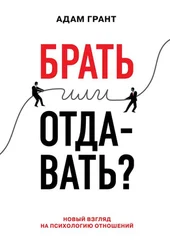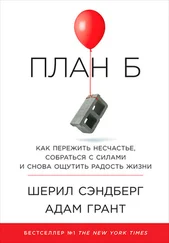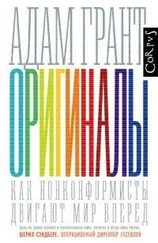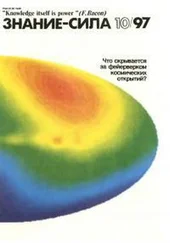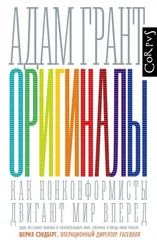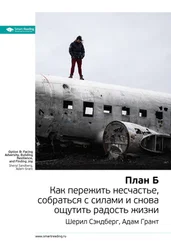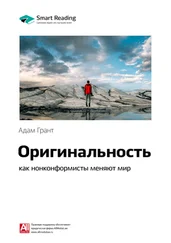Я начал не с ответов, а с вопросов о переосмыслении. Я искал новейшие данные рандомизированных контролируемых экспериментов и систематических исследований в реальных условиях. Когда информации не хватало, я организовывал собственные исследовательские проекты. Только сделав выводы из данных, я перешел к поиску примеров для иллюстрации. В идеальном мире любой вывод следует из метаанализа — изучения ряда исследований, в ходе которого ищут закономерности в совокупности данных и проверяют каждую единицу информации. В реальности я выбрал исследования, которые счел наиболее подробными, репрезентативными и дающими почву для размышлений. Иногда я описываю методы исследований, чтобы вы не только поняли, как ученые пришли к определенным выводам, но еще и чтобы вы понаблюдали за ходом их рассуждений. Во многих случаях я обобщил результаты, не вдаваясь в подробности, полагая, что вы учитесь научному переосмыслению, а не собираетесь податься в ученые. Если при упоминании метаанализа вы испытали прилив энтузиазма, возможно, вам стоит задуматься о социальных науках.
Neil Stenhouse et al., «The Potential Role of Actively Open-Minded Thinking in Preventing Motivated Reasoning about Controversial Science», Journal of Environmental Psychology 57 (2018): 17–24.
Mihaly Csikszentmihalyi, Creativity: Flow and the Psychology of Discovery and Invention (New York: HarperCollins, 1996).
Donald W. Mackinnon, «The Nature and Nurture of Creative Talent», American Psychologist 17 (1962): 484–495.
Dean Keith Simonton, «Presidential IQ, Openness, Intellectual Brilliance, and Leadership: Estimates and Correlations for 42 U.S. Chief Executives», Political Psychology 27 (2006): 511–526.
Jane E. Dutton and Robert B. Duncan, «The Creation of Momentum for Change through the Process of Strategic Issue Diagnosis», Strategic Management Journal (May/June 1987): 279–95.
Jacquie McNish, «RIM’s Mike Lazaridis Walks Out of BBC Interview», Globe and Mail, April 13, 2011, www.theglobeandmail.com/globe-investor/rims-mike-lazaridis-walks-out-of-bbc-interview/article1322202.
Sean Silcoff, Jacquie McNish, and Steve Laurantaye, «How BlackBerry Blew It», Globe and Mail, September 27, 2013, www.theglobeandmail.com/report-on-business/the-inside-story-of-why-blackberry-is-failing/article14563602/.
Jonathan S. Geller, «Open Letter to BlackBerry Bosses: Senior RIM Exec Tells All as Company Crumbles Around Him», BGR, June 30, 2011, bgr.com/2011/06/30/open-letter-to-blackberry-bosses-senior-rim-exec-tells-all-as-company-crumbles-around-him.
Personal interviews with Tony Fadell, June 1, 2020, and Mike Bell, November 14, 2019; Brian Merchant, The One Device: The Secret History of the iPhone (New York: Little, Brown, 2017).
Charles Darwin, The Descent of Man (London: Penguin Classics, 1871/2004).
Gabriel Anton, «On the Self-Awareness of Focal Drain Diseases by the Patient in Cortical Blindness and Cortical Deafness», Archiv für Psychiatrie und Nervenkrankheiten 32 (1899): 86–127.
Frederick C. Redlich and Joseph F. Dorsey, «Denial of Blindness by Patients with Cerebral Disease», Archives of Neurology & Psychiatry 53 (1945): 407–17.
Charles André, «Seneca and the First Description of Anton Syndrome», Journal of Neuro-Ophthalmology 38 (2018): 511–13.
Giuseppe Vallar and Roberta Ronchi, «Anosognosia for Motor and Sensory Deficits after Unilateral Brain Damage: A Review», Restorative Neurology and Neuroscience 24 (2006): 247–257; Howard C. Hughes, Robert Fendrich, and Sarah E. Streeter, «The Diversity of the Human Visual Experience», in Perception and Its Modalities, ed. Dustin Stokes, Moham Matthen, and Stephen Biggs (New York: Oxford University Press, 2015); David Dunning, Self-Insight: Roadblocks and Detours on the Path to Knowing Thyself (New York: Psychology Press, 2005); Costanza Papagno and Giuseppe Vallar, «Anosognosia for Left Hemiplegia: Babinski’s (1914) Cases», in Classic Cases in Neuropsychology, vol. 2, ed. Christopher Code et al. (New York: Psychology Press, 2003); Jiann-Jy Chen et al., «Anton-Babinski Syndrome in an Old Patient: ACase Report and Literature Review», Psychogeriatrics 15 (2015): 58–61; Susan M. McGlynn, «Impaired Awareness of Deficits in a Psychiatric Context: Implications for Rehabilitation», in Metacognition in Educational Theory and Practice, ed. Douglas J. Hacker, John Dunlosky, and Arthur C. Graesser (Mahwah, NJ: Erlbaum, 1998).
Agence France Presse, «Iceland’s Crisis-Era Central Bank Chief to Run for President», Yahoo! News, May 8, 2016, www.yahoo.com/news/icelands-crisis-era-central-bank-chief-run-president-152717120.html.
Samantha C. Paustian-Underdahl, Lisa Slattery Walker, and David J. Woehr, «Gender and Perceptions of Leadership Effectiveness: A Meta-analysis of Contextual Moderators», Journal of Applied Psychology 99 (2014): 1129–45.
Mark R. Leary et al., «The Impostor Phenomenon: Self-Perceptions, Reflected Appraisals, and Interpersonal Strategies», Journal of Personality 68 (2000): 725–56; Karina K. L. Mak, Sabina Kleitman, and Maree J. Abbott, «Impostor Phenomenon Measurement Scales: A Systematic Review», Frontiers in Psychology 10 (2019): 671.
Improbable, «The 2000 Ig™ Nobel Prize Ceremony», October 5, 2000, www.improbable.com/ig/2000.
Justin Kruger and David Dunning, «Unskilled and Unaware of It: How Difficulties in ecognizing One’s Own Incompetence Lead to Inflated Self-Assessments», Journal of Personality and Social Psychology 77 (1999): 1121–34.
John D. Mayer, A. T. Panter, and David R. Caruso, «When People Estimate Their Personal Intelligence Who Is Overconfident? Who Is Accurate?», Journal of Personality (May 19, 2020).
Nicholas Bloom, Renata Lemos, Raffaella Sadun, Daniela Scur, and John Van Reenen, «JEEA-FBBVA Lecture 2013: The New Empirical Economics of Management», Journal of the European Economic Association 12 (2014): 835–76, https://doi.org/10.1111/jeea.12094.
Менеджеры в США и ряде других стран оценивали себя почти адекватно, но это скорее исключение. В недавнем исследовании англоговорящие подростки из разных стран оценивали свои знания в шестнадцати разделах математики. Три раздела были выдуманные — описательные дроби, правильные числа и сослагательные вычисления, так что сразу было видно, кто профан. В среднем худшие результаты показали белые богатые мальчики из Северной Америки.
Читать дальше
Конец ознакомительного отрывка
Купить книгу

